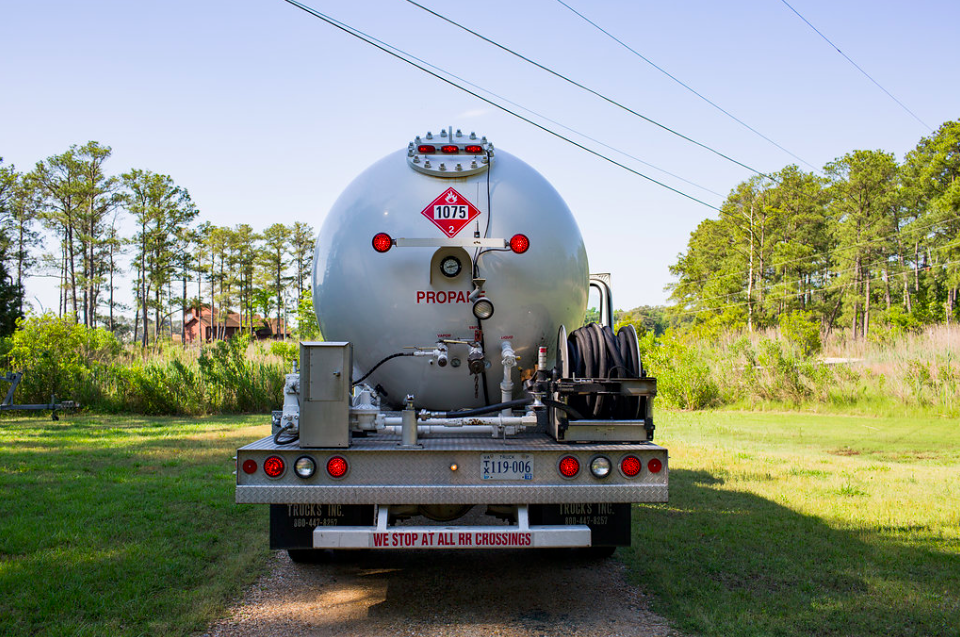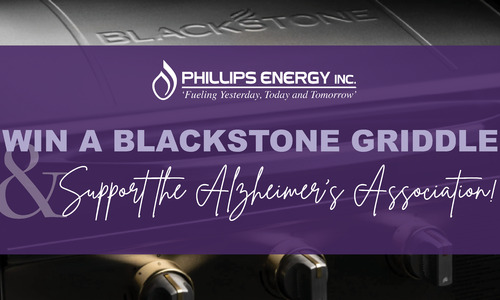SAFETY FIRST: Important Propane Safety Information for You and Your Family

Propane is a powerful and safe energy solution to fuel all of your family’s heating, cooking, water and lifestyle needs. It powers school buses all over the U.S., and right here in our community – a true testament to its safety. But like everything, it’s important to be safe. Remember these important safety tips, brought to you courtesy of the Propane Education & Research Council.
FIRST, UNDERSTAND ‘WHAT IS PROPANE?”
Propane, also called LPG or LP gas for liquified petroleum gas, is a liquid fuel stored under pressure. In most systems, propane is vaporized to a gas before it leaves the tank. Propane is flammable when mixed with air (oxygen) and can be ignited by many sources, including open flames, smoking materials, electrical sparks, and static electricity. Severe freeze burn or frostbite can result if propane liquid comes in contact with your skin.
IF YOU SMELL GAS
NO FLAMES OR SPARKS! Immediately put out all smoking materials and other open flames. Do not operate lights, appliances, telephones, or cell phones. Flames or sparks from these sources can trigger an explosion or fire.
LEAVE THE AREA IMMEDIATELY! Get everyone out of the building or area where you suspect gas is leaking.
SHUT OFF THE GAS. Turn off the main gas supply valve on your propane tank if it is safe to do so. To close the valve, turn it to the right (clockwise).
REPORT THE LEAK. From a neighbor’s home or other nearby building away from the gas leak, call Phillips Energy right away. If you can’t reach us for any reason, call 911 or your local fire department.
DO NOT RETURN TO THE BUILDING OR AREA until Phillips Energy, emergency responder or qualified service technician determines that it is safe to do so.
GET YOUR SYSTEM CHECKED. Before you attempt to use any of your propane appliances, Phillips Energy must check your entire system to ensure it is leak-free.
BUT WHAT DOES GAS SMELL LIKE?
Propane smells like rotten eggs, a skunk’s spray or a dead animal. Some people have difficulty smelling propane due to their age (older adults have a less sensitive sense of smell), a medical condition or the effects of medication, alcohol tobacco or drugs.
On rare occasions, program can lose its odor due to the presence of air, water, or rust in a propane tank or cylinder or the passage of leaking propane through the soil. Since there is a possibility of odor loss or problems with your sense of smell, you should always respond immediately to event a faint odor of gas.
CAN I INSTALL A PROPANE GAS DETECTOR?
Absolutely. Propane gas detectors sound an alarm if they sense propane in the air. They can provide an additional measure of security. You should consider the purchase of one or more detectors for your home.
When you do, contact Phillips Energy and we can help you. You should only buy units that are listed by Underwriters Laboratories (UL).
Even if you have a detector, NEVER ignore the smell of propane even if the detector is not sounding an alarm.
CARBON MONOXIDE AND YOUR SAFETY
Carbon monoxide (CO) is something you can’t see, taste or smell. But it is a very dangerous gas, produced when any fuel burns. High levels of CO can come from appliances that are not operating correctly, or from a venting system or chimney that becomes blocked. CO can be deadly and can make you dizzy or sick. In extreme cases, CO can cause brain damage or death.
Symptoms of CO include headache, dizziness, fatigue, shortness of breath and nausea.
If you suspect CO is present, act immediately. Get everyone out of the building can call 911 or your local fire department.
If it is safe to do so, open windows and turn off any appliances you suspect might be releasing CO.
If no one has symptoms, but you suspect that CO is present, call Phillips Energy to come out and check the CO levels and your propane equipment.
To help reduce the risk of CO poisoning, have Phillips Energy check your propane appliances and related venting systems annually, preferably before the heating season begins.
Install a UL-listed CO detector on every level of your home.
Never use a gas oven or range-top burners to provide space heating.
Never use portable heaters indoors unless they are designed and approved for indoor use.
Never use a barbecue grill (propane or charcoal) indoors for cooking or heating.
Regularly check your appliance exhaust vents for blockage.
Know the signs of improper appliance operation that can generate high CO levels. Sooting, especially on appliances and vents, can be a sign, as can an unfamiliar or burning odor or increased moisture inside of windows.
LIGHTING PILOT LIGHTS
If a pilot light repeatedly goes out or is very difficult to light, there might be a safety problem. Do not try to fix the problem yourself. Call Phillips Energy.
APPLIANCE MAINTENANCE AND SAFETY TIPS
LEAVE IT TO THE EXPERTS. Only a qualified service technician has the training to install, inspect, service, maintain and repair your appliances. Have your appliances and propane system inspected just before the start of heating season.
HELP YOUR APPLIANCES BREATHE. Check the vents of your appliances to be sure that flue gases can flow easily to the outdoors; clear away any insect or bird nests and other debris. Also, clear the area around your appliances so plenty of air can reach the burner for proper combustion.
DO NOT TRY TO REPAIR OR MODIFY valves, regulators, connectors, controls or other appliance and cylinder/tank parts. Doing so creates the risk of a gas leak that can result in property damage or serious injury.
HAVE OLDER APPLIANCE CONNECTORS INSPECTED. Certain older appliance connectors may crack or break, causing a gas leak. If you have an appliance that is more than 20 years old, have a qualified service technician inspect the connector. Do not do this yourself as movement of the appliance might damage the connector and cause a leak.
